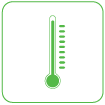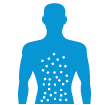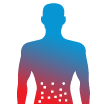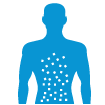Having a low neutrophil count is a condition known as neutropenia.
Neutropenia can increase your risk of developing certain types of infections. A low white blood cell count with fever, also known as febrile neutropenia, can be a sign of a serious infection.2 You should call your doctor or nurse right away if you get a fever higher than 38°C.4











